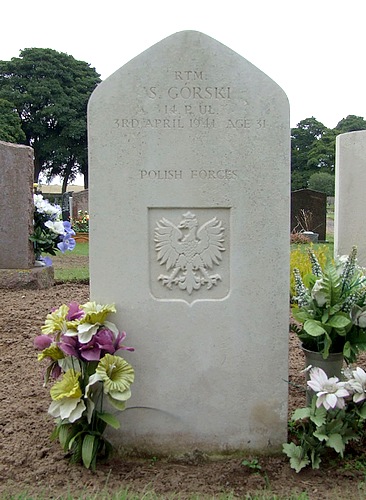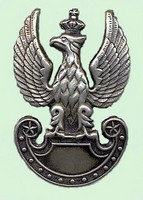Out of the memoires of Cpt Jacek Zagórski
3 April 1941 Thursday
Night exercises with most tragic consequences. Our company commander, Captain Górski said that, following my course performance, l should get some useful experience and took me as his "runner" for the duration of the exercise.
The duties required the runner to follow his officer like a trained dog delivering, collecting messages, carrying his food and water and generally being a "Boy Friday" with 101 duties, mostly anticipating what the officer might need or do.
By midnight l was at the point of collapse, while the Captain seemed to be as fresh and full of energy as ever. That was so typical of him. Tough, demanding more of himself than of others, and very fair. One could not wish for a better commander. He was very highly regarded by the troops and by his superiors. Of course, l knew him well from the time when he led us out of the collapsing France.
We stopped at a command pillbox. Górski said that l could have a rest as he would not need me for an hour or so. There was bedlam in the pillbox. It was pitch dark, there were snoring bodies all over the concrete floor some patrols were leaving, some were returning, socks were unwashed.....l found a spot in a far corner, just enough space to sit against the wall, and promptly fell asleep.
Almost immediately, or so it seemed, somebody shook me up. The Captain wanted me to go with him to check another post. At first l could not quite wake up, but a whack in the ribs got me up and on my feet. For some minutes l could not find my spectacles, groping in the dark on all fours. My section leader was calling me, but to my horror my rifle was gone. l had been asleep for nearly an hour and with the patrols coming and going, somebody took my rifle. A soldier without a rifle is like a boil without horns.
Górski eventually took pity on me, sent me back to the pillbox and took someone else with him, corporal Stasiak. About half an hour later there was an explosion, like an artillery shell. Someone went to investigate and found Stasiak in the middle of a mine field with his legs blown off, no sign of the Captain. There was just enough light to discern foot prints in the sand.
Here my platoon leader
Lt J Friedrich, a regular cavalry officer about 22 years old, did something incredibly courageous. He stepped into the mine field, trying to place his feet in Stasiak's footsteps. He picked him up in his arms, turned around ever so carefully and retraced his steps out to safe area.
l could never understand why Friederichs was not in some way recognised for this incredible deed. When asked, he simply said "Stasiak was one of my men. I couldn't leave him there".
These very early models of anti-tank mines were too sensitive. Sometimes they could be triggered by a large dog. Later in the war, mines designed for vehicles would not explode when walked upon. Unfortunately, Stasiak died due to massive loss of blood from the stumps of his legs. Of Captain Górski we found only his steel helmet and a few pieces of clothing.
The funeral with full military honours took place two days later. As the cavalry tradition required, a horse draped with a black mourning shroud was led behind the casket. This was the second time that my life was spared. It was very traumatic for me because it was due to my circumstances that Stasiak took my place.
This funeral reminds me of our Chaplain. He was a very caring and understanding padre. Under our difficult circumstances, many people, separated from families and friends, needed counselling, sympathy and support. He was particularly helpful in this respect, very freely giving his time and care.
|



